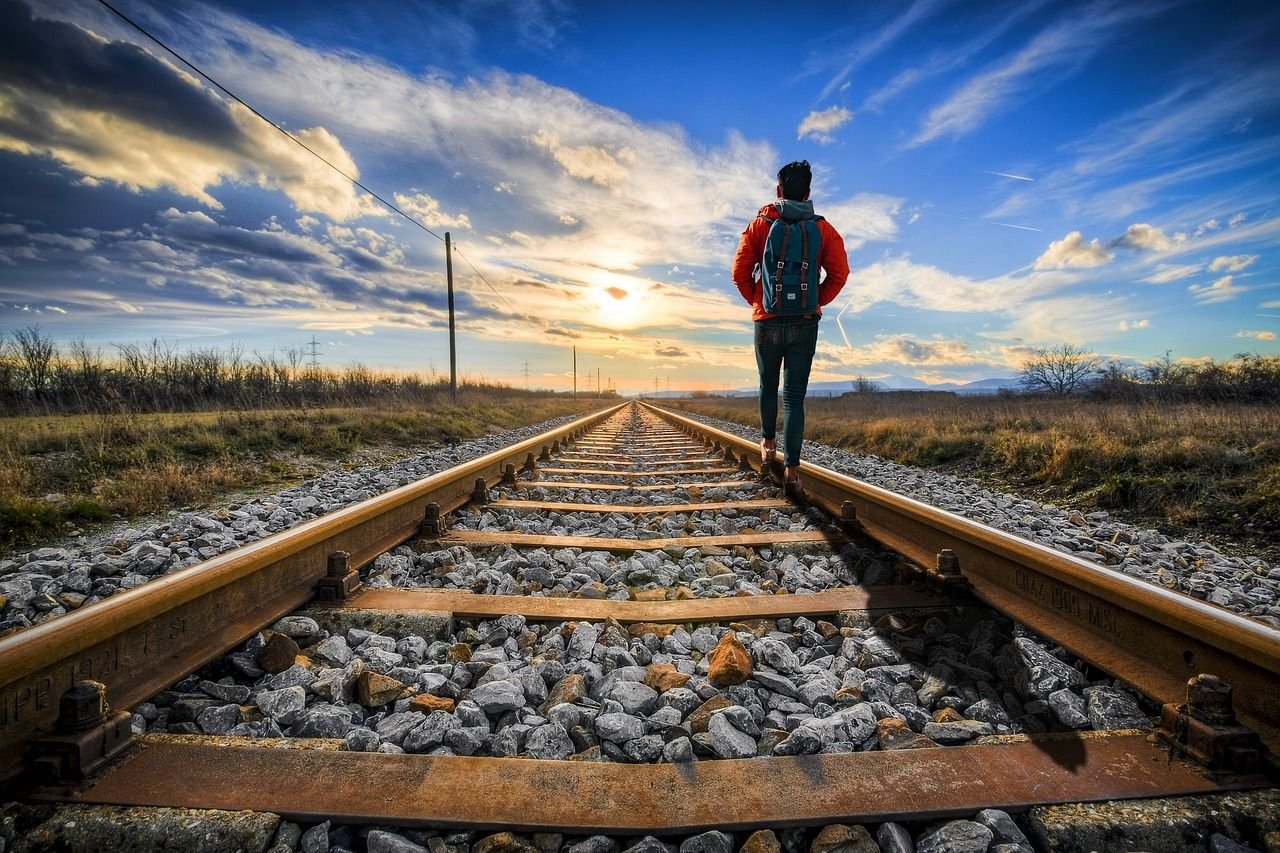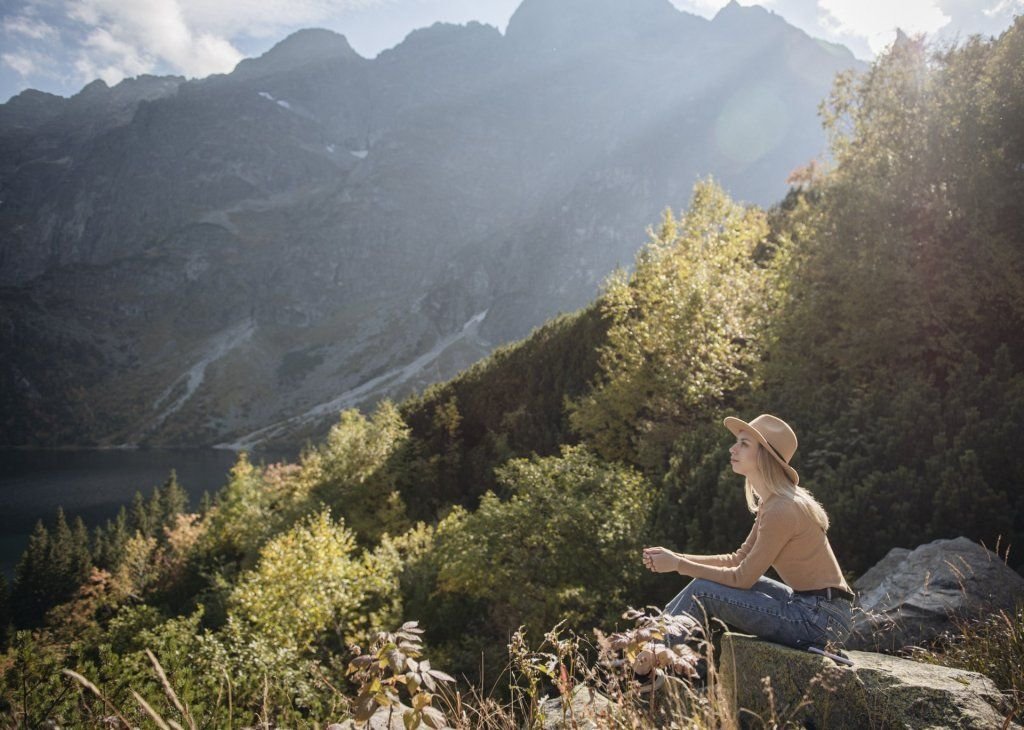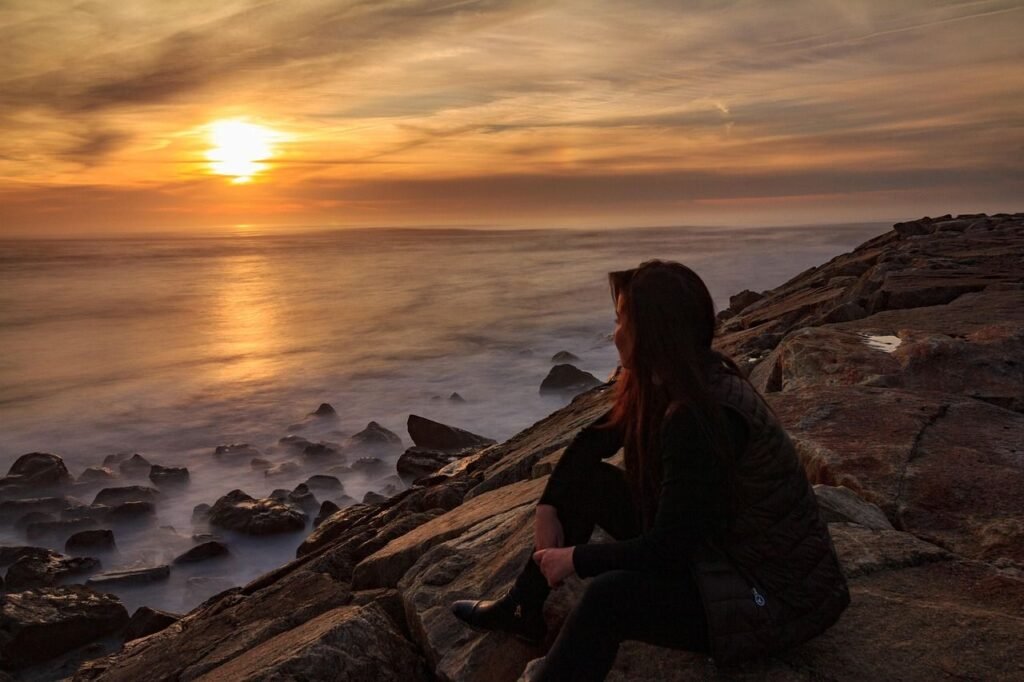Physical Address
304 North Cardinal St.
Dorchester Center, MA 02124


First Independent Journey with Complete Freedom
Discover the transformative power of solo travel and unlock the secrets to planning your perfect independent adventure. This comprehensive guide reveals practical steps to embark on your journey of self-discovery and freedom.
Have you ever wondered what it would feel like to wake up in a foreign city with endless possibilities ahead of you? Solo travel isn’t just about visiting new places; it’s about discovering parts of yourself you never knew existed. From the moment you step off the plane, you’re completely independent and free to make every decision, and something magical happens.
Picture this: You’re standing in a bustling morning market in Bangkok. The aroma of fresh coconut pancakes mingles with the gentle chaos of vendors calling out their wares. There’s no one to consult and no compromises to make,just you and the pure freedom to follow your curiosity wherever it leads.
When you travel alone, the familiar safety nets you rely on daily are stripped away. Without the comfort of companionship, you’re forced to engage more deeply with your surroundings ,and with yourself. Studies show that independent travelers develop better problem-solving skills, greater confidence, and a broader worldview.
The beauty lies in the unexpected: sharing tea with a local family who invites you into their home; discovering a hidden waterfall by taking the “wrong” path; or striking up a deep conversation with a stranger who becomes a lifelong friend.
Your journey to freedom begins long before you pack your bags. Start by immersing yourself in the culture, customs, and current events of your chosen destination. This isn’t just academic preparation; it’s about building excitement and understanding the nuances that will enrich your experience.
Essential documents checklist:
Your health is your most valuable travel companion. Schedule an appointment with a travel medicine specialist at least four to six weeks before you leave. The specialist will advise you on necessary vaccinations and provide information about health risks specific to your destination.
Create a comprehensive first-aid kit tailored to your destination. Include everything from basic bandages to medication for altitude sickness if you’re heading to high-elevation areas. Remember to bring your prescription medications in their original containers, along with copies of the prescriptions.
Not all destinations are ideal for first-time solo travelers. Some places embrace independent adventurers with open arms, while others require more experience and cultural sensitivity.
Top destinations for solo travel beginners:
Japan – Despite the language barrier, Japan offers unparalleled safety and efficient transportation. Its culture respects personal space. The country’s meticulous attention to detail ensures that everything from train schedules to restaurant etiquette is clearly marked and predictable.

solo travel- japan
New Zealand – With its English-speaking population, stunning landscapes, and well-established infrastructure for backpackers, New Zealand feels like a playground designed for solo adventurers. Locals, known as Kiwis, are genuinely friendly and always eager to share their favorite spots.

New Zealand feels like a playground designed for solo adventurers
Portugal – Often overlooked in favor of its larger neighbor, Spain, Portugal offers incredible value, historic charm, and some of the most welcoming locals in Europe. Its compact size makes Portugal perfect for first-time solo travelers who want to experience diverse landscapes with minimal planning.

portugal-solo travelers who want to experience diverse landscapes with minimal planning.
Once you’ve mastered the basics of independent travel, the world is your oyster. Countries like India, Myanmar, and Madagascar offer a deep cultural experience, but they also require more preparation and cultural sensitivity.
Destination Selection Criteria:
| Factor | Beginner Level | Advanced Level |
|---|---|---|
| Language barrier | Minimal | Significant |
| Infrastructure | Well-developed | Basic/Developing |
| Cultural familiarity | Similar to home | Completely different |
| Safety level | Very high | Moderate precautions needed |
| Tourist support | Extensive | Limited |
Your intuition is your greatest safety tool when traveling alone. Trust your instincts when something doesn’t feel right, such as a too-good-to-be-true offer from a stranger or an uncomfortable neighborhood.
Develop a habit of constant awareness, but don’t be paranoid. Notice who is around you, identify exit routes, and always inform someone of your plans. This doesn’t mean living in fear; it means being smart about your independence.
Establish a regular communication schedule with family or friends back home. Whether it’s a daily text message or a weekly video call, consistent contact provides peace of mind for everyone.
Modern technology offers solo travelers incredible safety tools. You can share your location with trusted contacts using your smartphone, carry a portable Wi-Fi device for constant connectivity, and download offline maps and translation apps.
Create multiple backup plans for different scenarios. What would you do if you lost your passport? What if you get sick? What if your accommodations fall through? Mental rehearsal of these situations reduces stress and helps you respond calmly if they occur.
Emergency contact card template:
Although solo travel often has a reputation for being expensive, it can be surprisingly economical with smart planning. The key is knowing where to spend and where to save.
Cost-effective strategies:
Prioritize spending on:
Save money on:
| Region | Budget Range | Accommodation | Food | Activities | Transport |
|---|---|---|---|---|---|
| Southeast Asia | $25-50 | $8-15 | $5-10 | $5-15 | $2-8 |
| Eastern Europe | $35-70 | $15-30 | $10-20 | $10-25 | $5-15 |
| Western Europe | $80-150 | $40-80 | $20-40 | $15-30 | $10-20 |
| Australia/NZ | $90-180 | $50-100 | $25-50 | $20-40 | $15-25 |
The growing popularity of solo travel has given rise to numerous accommodations specifically designed for independent adventurers. From capsule hotels in Japan to co-living spaces in major cities, there’s an option for every comfort level and budget.
Hostels Reimagined: Modern hostels have evolved far beyond cramped, stereotypical dormitories. Many now offer private rooms and shared common areas, which are perfect for solo travelers who want both privacy and opportunities for social interaction.
Boutique Guesthouses: These smaller properties often offer a more personalized experience and local insights that large hotels simply can’t match. The owners can be your best resource for discovering hidden gems and having authentic experiences.
Apartment Rentals: Platforms like Airbnb offer the comfort of having your own space and are often more economical than hotels, especially for long stays.
As a solo traveler, your primary consideration when booking accommodations should be safety, followed by location and amenities. Read reviews carefully and pay particular attention to comments from other solo travelers, especially those of the same gender.
Key safety features to look for:
Public transportation isn’t just economical; it’s also the best way to experience a destination authentically. Taking the subway in Tokyo, riding a tuk-tuk in Bangkok, or navigating the bus system in Guatemala City allows you to experience the daily rhythm of local life.
Download transportation apps before you arrive. Many cities worldwide have developed sophisticated apps that make navigating public transit easy for visitors, even those who don’t speak the local language.
Sometimes, it’s worth it to spend extra on private transportation. Situations that justify the additional expense include late-night arrivals in unfamiliar cities, travel to remote destinations, and carrying valuable equipment.
Consider private transport for:
Solo travel opens up transportation options that might not work for groups. For example, motorcycle rentals in Vietnam, bicycle tours through Amsterdam, and hitchhiking in certain countries become viable and exciting possibilities.
Unique solo transportation experiences:
Contrary to popular belief, solo travel often results in more meaningful connections than group travel. Without the security of a companion, you’re more approachable to locals and other travelers. You’re also more likely to accept unexpected invitations and opportunities.
Natural conversation starters:
When you’re traveling solo, language barriers become opportunities rather than obstacles. A smile, a few basic phrases in the local language, and a genuine curiosity about local customs can open doors that remain closed to travelers who are less engaged.
Learn basic phrases beyond “hello” and “thank you.” Being able to ask, “What is this?” or “Can you recommend something local?” can transform ordinary moments into extraordinary memories.
The modern solo travel landscape includes vibrant online and offline communities. Apps like Meetup and Facebook groups for solo travelers, as well as co-working spaces in major cities, provide instant access to like-minded individuals.
Popular platforms for solo traveler connections:
Even the most independent people experience loneliness while traveling alone. The key is to recognize these feelings as temporary and to have strategies for addressing them constructively.
Combating loneliness:
Although language barriers can feel overwhelming, they are often less problematic than anticipated. Most tourist areas have English-speaking staff, and technology offers excellent real-time translation tools.
Communication strategies:
Everyone makes cultural mistakes while traveling. It’s all part of the learning process! The key is to approach these situations with humility and a genuine desire to understand and respect local customs.
When you make a cultural misstep, acknowledge it gracefully. Apologize if appropriate and use the experience as a learning opportunity. Locals often appreciate travelers who show genuine respect for their customs, even when they make honest mistakes.
Embrace the concept of slow travel by spending more time in fewer destinations. This approach allows for deeper cultural immersion, reduced transportation costs, and the creation of meaningful relationships with locals.
Benefits of slow travel:
Solo travelers have the flexibility to travel during the off-peak season, which allows them to save money and have a more authentic experience. Shoulder seasons often offer the ideal combination of good weather, smaller crowds, and reasonable prices.
Off-season benefits:
Solo travel accelerates personal development in ways that group travel cannot. Overcoming challenges, successfully navigating unfamiliar systems, and engaging in meaningful conversations with strangers can boost confidence and expand capabilities.
Skills enhanced through solo travel:
Modern technology has transformed solo travel from a daunting task to a manageable one. The right apps can offer translation services, navigation assistance, help with booking accommodations, and emergency support.
Must-have travel apps:
Use technology to ensure your safety without becoming dependent on it. GPS tracking, emergency SOS features, and regular check-in apps can provide security while still allowing you to maintain your sense of adventure.
Safety technology tools:
Solo travel provides incredible opportunities for storytelling and documentation. However, strike a balance between sharing your experiences and staying present in the moment.
Smart social media practices:
When traveling alone, you are solely responsible for your health and well-being. Establish routines that support your physical health, but remain flexible enough to adapt to the unpredictable nature of travel.
Health maintenance strategies:
The intensity of solo travel can be emotionally taxing. Establish self-care routines to help you process experiences and maintain emotional balance.
Mental wellness practices:
Extended solo travel can lead to burnout, which is characterized by exhaustion, decreased enjoyment of travel, and a constant desire to return home. It’s important to recognize the signs early and take proactive steps to address them.
Burnout prevention:
True cultural immersion happens in the spaces between tourist attractions. Seek out local markets, neighborhood festivals, community centers, and other everyday gathering places where authentic culture thrives.
Immersion opportunities:
Every culture has subtle social norms that go far beyond what is covered in guidebooks. Observe how the locals interact, dress, and behave in different settings. These observations will serve as your guide to respectful participation.
Cultural observation techniques:
Responsible solo travel means giving back to the communities that welcome you. It doesn’t have to be formal volunteering; it can be as simple as supporting local businesses, respecting cultural sites, and leaving places better than you found them.
Ways to contribute positively:
Managing your finances while traveling alone requires careful planning and multiple backup systems. Diversify your access to funds, and always have a plan in place for financial emergencies.
Financial security checklist:
Because they are often perceived as targets for theft, solo travelers must be security-aware. The key is to be alert without becoming paranoid or allowing security concerns to diminish your travel experience.
Valuable protection strategies:
Every destination has common scams that target tourists, and solo travelers may be particularly vulnerable. Research common scams before you arrive, and trust your instincts when situations seem too good to be true.
Common travel scams to watch for:
Your first solo adventure doesn’t have to be a month-long trip to Southeast Asia. Build your confidence gradually by starting with shorter trips closer to home and systematically expanding your comfort zone.
Progressive solo travel building:
Every solo traveler faces challenges, such as missed flights, accommodation issues, cultural misunderstandings, and feeling overwhelmed. However, these setbacks can become valuable learning experiences that build resilience and problem-solving skills.
Turning setbacks into growth:
Acknowledge and celebrate the courage it takes to travel alone. Every time you successfully navigate a foreign transit system, have a meaningful conversation with a local, or experience a moment of pure joy alone, you achieve something worth recognizing.
Solo travel victories to celebrate:
Solo travel provides an opportunity to minimize environmental impact by making conscious choices. Smaller group sizes, flexible transportation options, and the ability to support local eco-friendly initiatives all contribute to more sustainable tourism.
Eco-friendly solo travel practices:
As a solo traveler, your spending choices directly impact local economies. Support businesses owned by local residents and participate in community-based tourism initiatives to ensure your travel dollars benefit the communities you visit.
Supporting local economies:
When traveling alone, you have the opportunity to experience local cultures up close. This comes with the responsibility of engaging respectfully and helping to preserve cultural authenticity for future generations.
Cultural preservation practices:
Your first solo trip sets the tone for future adventures. Choose a destination that excites you and matches your current comfort level and travel experience. Success breeds confidence for more adventurous journeys to come.
First solo trip considerations:
When planning your first solo adventure, balance structure with flexibility. Plan enough to feel secure, but leave room for the spontaneous discoveries that often become the highlights of a trip.
Itinerary planning tips:
The weeks before your departure are crucial for setting yourself up for success as a solo traveler. Complete the necessary preparations without overplanning, and build your excitement by doing research and exploring the culture.
Final preparation checklist:
Returning from solo travel can involve reverse culture shock, as well as the challenge of integrating new perspectives into daily life. Allow yourself time to reflect on and process your experiences.
Post-travel integration strategies:
One of the greatest gifts of solo travel is forming connections with people from around the world. Nurture these relationships by staying in touch through social media and email and by planning future visits.
Keeping travel friendships alive:
Successful solo travel can become addictive in the best way possible. Use your first experience to determine what went well and how you can improve for future trips.
Building on first solo travel success:
Is solo travel safe for first-time travelers? With proper preparation and awareness, solo travel can be very safe. Begin by choosing destinations that are known for their safety and strong tourist infrastructure. Research common scams and cultural norms, and trust your instincts. Many solo travelers find that they feel safer than expected because they’re more alert and make more conservative choices than they would in a group.
How can I meet people while traveling alone? Solo travelers often find it easier than group travelers do to meet people because they appear more approachable. Stay in hostels or guesthouses with common areas, join walking tours or cooking classes, use traveler- and local-designed apps, and accept invitations. Remember, other solo travelers and locals are often happy to connect with friendly visitors.
What should I do if I get sick while traveling alone? Prepare for health issues before you leave by purchasing comprehensive travel insurance, researching healthcare options at your destination, and carrying a well-stocked first aid kit. Have emergency contact information readily available, know how to access medical care, and don’t hesitate to seek help when needed. Many destinations have excellent healthcare facilities for tourists.
How much should I budget for solo travel? The cost of solo travel varies dramatically by destination, travel style, and personal preferences. Research the average daily costs of your destination and factor in accommodation, food, transportation, and activities. Then, add a 20-30% buffer for unexpected expenses. Keep in mind that some costs, such as accommodation and tours, may be higher per person, but you have complete control over all spending decisions.
Should I plan everything in advance, or should I be spontaneous? The ideal approach is to balance planning with flexibility. Book your first few nights of accommodation and any activities that require advance reservations, but leave room for spontaneity. Over-planning can limit opportunities for serendipitous experiences, while under-planning can lead to stress and missed opportunities.
What are the biggest challenges of solo travel? Common challenges include occasional loneliness, making all decisions independently, solving problems without support, and higher costs for single accommodations. However, most solo travelers find that these challenges become part of the growth experience, and they develop strategies to address them effectively.
How can I stay connected with my family while traveling? Modern technology makes it easier than ever to stay connected. Set up regular check-in schedules via video calls, messaging apps, or email. Share your location with trusted contacts, use Wi-Fi calling to reduce costs, and purchase local SIM cards or international data plans for consistent connectivity.
Are you ready to embark on a journey of self-discovery and freedom? The world is waiting for your independent spirit, and the perfect solo adventure is just a booking away. Whether you dream of watching the sun rise over Angkor Wat, navigating Tokyo’s neon-lit streets, or discovering hidden beaches in Portugal, your solo travel story begins with a single step.
Don’t let fear prevent you from having the transformative experience of independent travel. Start planning your first solo trip today and join the millions of travelers who have found that the best travel companion is often yourself.
Visit TravelGoEasy.net to book flights, secure accommodations, arrange transportation, and access exclusive deals designed for independent adventurers. Your freedom awaits,claim it!
Which destination is calling your name for your first solo adventure? Share your dreams and concerns in the comments below. Our community of experienced solo travelers will help guide you toward the perfect independent journey!
This article was created exclusively for TravelGoEasy.net and is protected by copyright law. All rights reserved. No part of this content may be reproduced or used without explicit permission.
The world is waiting for your independent spirit, and the perfect solo adventure is just a booking away. Whether you dream of watching the sun rise over Angkor Wat, navigating Tokyo’s neon-lit streets, or discovering hidden beaches in Portugal, your solo travel story begins with a single step.





[…] Learn More […]